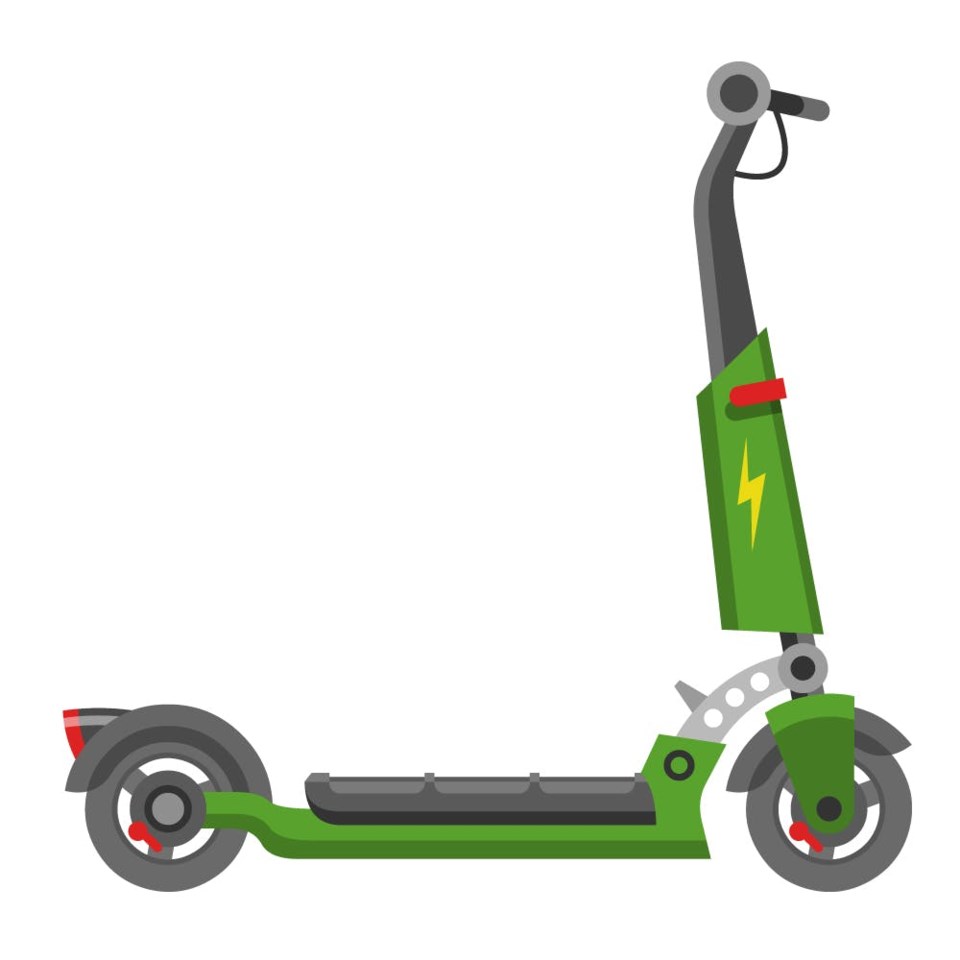Cambridge residents will soon have another active transportation option as region staff gets ready to present its survey findings to council this fall.
When the province launched five-year pilot program to permit electric kick scooters (e-scooters) on roads earlier this year, region staff launched a study into how the program could be implemented in the area, said Kevan Marshall, principal planner, Transportation Demand Management.
He recently talked to CambridgeToday about the upcoming reports.
E-scooters have battery-powered motors with a platform for your feet and are steered with waist-high handlebars, Marshall said, adding, this Ministry of Transportation of Ontario pilot project does not address mobility/accessibility scooters, e-bikes, or electric mopeds.
Earlier this year, he said, region staff completed a public consultation to gather feedback from residents around the e-scooters.
A survey that was available on the Engage Region of Waterloo website received more than 1,400 responses, Marshall noted.
"Overall, what we found that 54 per cent (respondents) expressed direct support for the staff-recommended option," he said. "Banning e-scooters outright was the least preferred option across the board."
The preferred option, if approved by the region, Marshall said, e-scooters will be permitted on trails and multi-use paths, all roads with reserved bike lanes, and any roads with a speed limit of 50 km/h or less.
In addition, he said, the region will be applying further restrictions, such as controlling the speed of the e-scooters and locations where they can be parked.
Of those that responded, 67 per cent said they would support e-scooter companies that operate locally, he said, adding, he was not aware of any companies operating locally considering the e-scooter is only allowed on private properties.
The results of the survey, along with other pieces of the puzzle, such as an update to the traffic and parking bylaw, will be presented simultaneously to regional and municipal councils this fall, Marshall said.
"We're still working with an internal working group around risk management and legal (implications)," he said. "That piece is laid out with some expectations on the liability of the rental company to manage the fleet of vehicles, with the understanding that they will cover liability for their e-scooter and the rider. If somebody has a personal (e-scooter), the rules are similar to liability for bicycles."
As for enforcement, Marshall said, the Waterloo Region Police Service will be primarily responsible for enforcement of issues beyond parking management.
If approval is received, he said, staff will begin working on identifying local e-scooter companies that can be rental partners.
The project, once approved, will be launched in spring next year, Marshall said.



